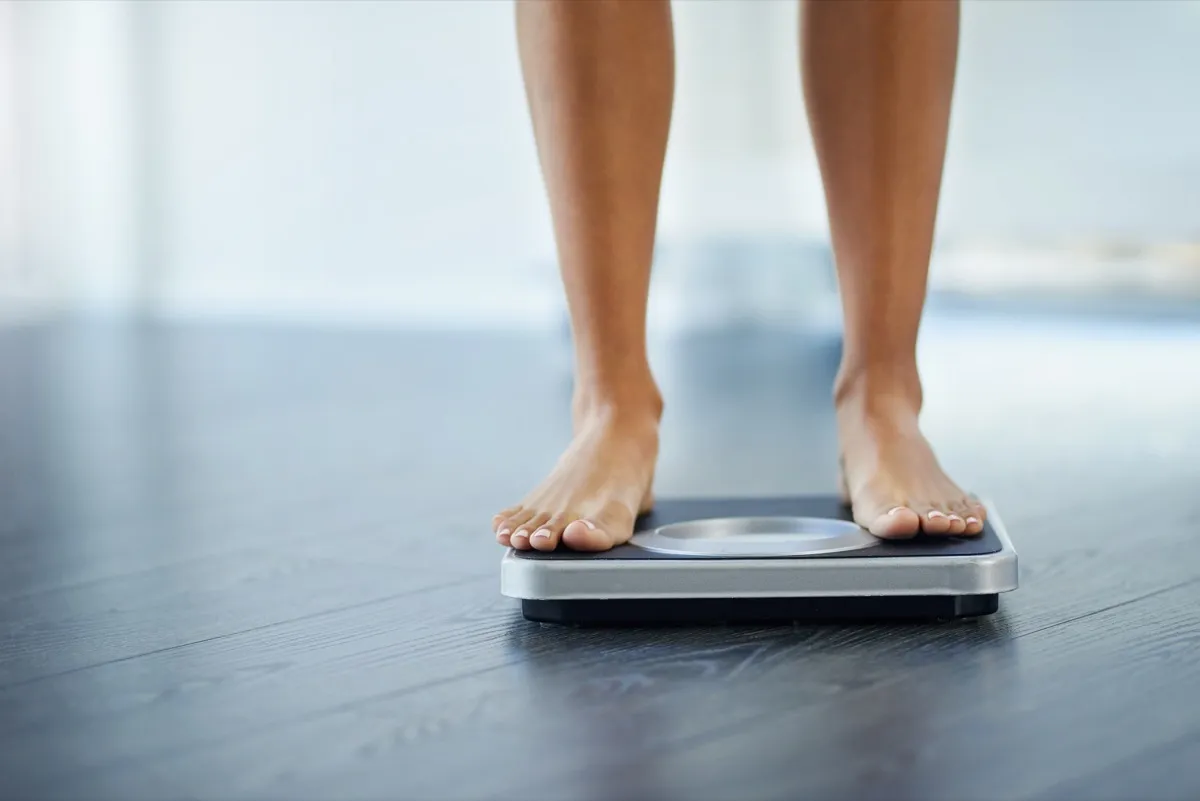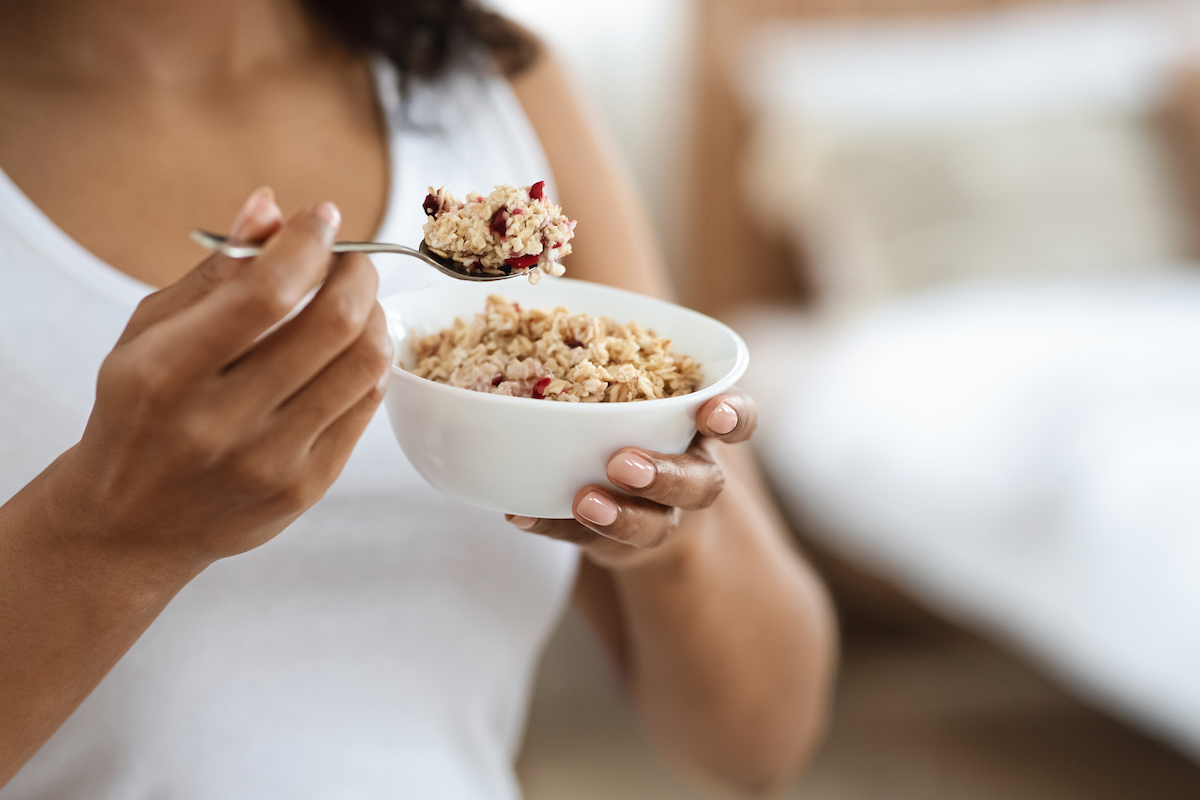You Can Lower Your Heart Risk By Eating at This Time
Every year, roughly 697,000 people die from heart disease in the U.S., accounting for one in every five deaths in the nation. Though it is considered the number one cause of mortality in both women and men, there are many ways you can reduce your personal risk of a coronary condition. In particular, lowering certain cardiometabolic risk factors such as your blood sugar, blood pressure, and low-density lipid (LDL) can significantly slash your risk—and experts say you may be able to see improvements in these areas by eating at a certain time of day. Read on to learn the healthiest time to eat, and why the benefits don’t stop there.
READ THIS NEXT: Doing This When You Walk Slashes Your Risk of Heart Attack, Cancer, and Dementia, New Study Says.

Maintaining a healthy blood pressure and low levels of LDL cholesterol are two well-known ways to lower your risk of heart disease and other cardiovascular conditions. Even your blood sugar, less widely regarded as a cardiovascular risk factor, can have a significant impact on your heart health. “Over time, high blood sugar can damage blood vessels and the nerves that control your heart,” the Center for Disease Control and Prevention (CDC) explains.
Besides exercising regularly and maintaining a whole-foods based diet rich in fruits, vegetables, whole grains, healthy fats, and lean proteins, experts say there’s one more way you can improve these risk factors. By eating for a certain window of time beginning at a particular time of day, you may be able to improve your blood sugar, blood pressure, and cholesterol in one fell swoop.
READ THIS NEXT: This Is the No. 1 Heart Attack Symptom People Ignore, Doctors Say.

According to two new studies published in the journal Cell Metabolism, it’s not just what you eat—but also when and for how long—that determines your body’s reaction. The pair of studies found that eating during a 10-hour window could help you lower your blood sugar, blood pressure, and cholesterol levels, among other benefits.
One of the two studies focused on a group of 137 firefighters who worked 24-hour shifts. For 12 weeks, the firefighters followed either a time restricted eating plan (TRE) “without overtly attempting to limit energy intake,” or followed their usual eating plan. In order to eat within a 10-hour window, most of the study participants who did the TRE plan delayed their breakfast for one to two hours and pushed up their dinner one to two hours. So, if they ate breakfast at 9:00 a.m they would have dinner before 7:00 p.m.
The researchers determined that “TRE is feasible and can improve cardiometabolic health, especially for individuals with increased risk.”

In addition to lowering their cardiometabolic risk factors, eating during a 10-hour window also helped study participants lose more weight.
The researchers attributed this benefit to their observation that late eating increased hunger, decreased 24-hour serum leptin (a protein hormone that helps people feel full), and decreased energy expenditure. It also altered the participants’ gene expression in such a way that caused them to retain more fat on the body. “Combined, these changes upon late eating may increase obesity risk in humans,” the study authors wrote.

In addition to the benefits the researchers observed, they also noted that those who ate during a restricted eating window saw no adverse effects. In fact, they noted “improved quality of life” as one of the outcomes of early time restricted eating.
“You have this internal biological clock that makes you better at doing different things at different times of the day,” Courtney Peterson, PhD, an associate professor of nutrition sciences at the University of Alabama at Birmingham, told NBC News. ““It seems like the best time for your metabolism, in most people, is the mid- to late morning,” she added. In fact, thanks to the “favorable effects” associated with time restricted eating, which “should translate into less built-up plaque in the arteries and less cardiovascular disease,” Peterson told the outlet she wouldn’t be surprised if someday in the future, we see federal recommendations for eating windows or meal times.
" Conservative News Daily does not always share or support the views and opinions expressed here; they are just those of the writer."





